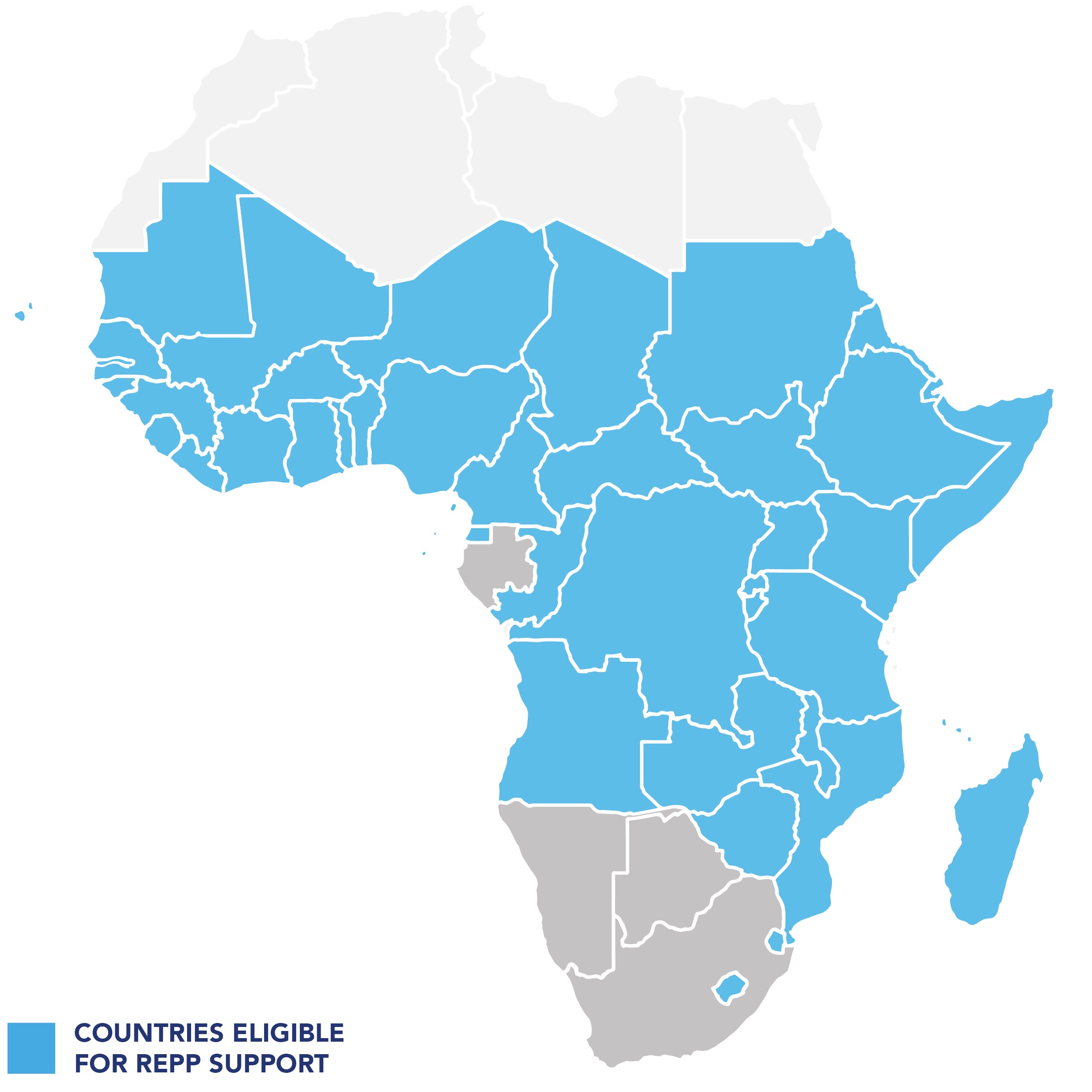Supports national electrification efforts in 10 countries. In DRC, for example, it is well-aligned with the National Development Strategic Plan 2019-2023, which calls for the increase in modern energy access to reduce the use of traditional biomass. In Kenya, it supports the Updated NDC (2020) mitigation and adaptation goals, which focus on increasing solar-based generation and abating GHG emissions by 32% by 2030. Also strongly aligned with Nigeria’s ‘new paradigm for rural electrification’ – delivering energy access through a mix of centralised and decentralised approaches.
OUR PROJECTS
Bboxx
Technology: Solar home systems
+ –
Bboxx
Technology:
Solar home systems

Project type:
Off-grid
Offtaker:
Off-grid communities
Greenhouse gas emissions avoided: 15,324 tCO2e per year (target) / 65,048 tCO2e (achieved, cumulative)
People with first-time energy access: 464,000 (target) / 643,825 (achieved)
Installed capacity: 16MW (target) / 4.8MW (achieved)
Funding structure
Contracted date: 6 September 2022
Lending type: Equity and warrants
REPP funding: USD 2.9 million
Relevant SDGs
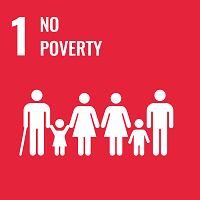
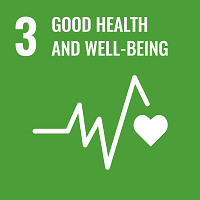

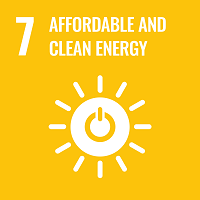
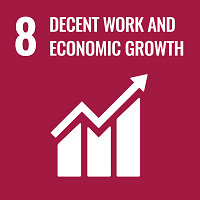


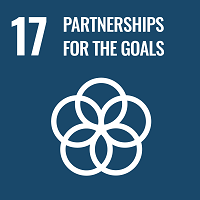
Country policy alignment
Ha Makebe, Lesotho
Technology: Solar PV mini-grids
+ –
Ha Makebe, Lesotho
Technology:
Solar PV mini-grids
Project type:
Off-grid
Offtaker:
Off-grid communities
Greenhouse gas emissions avoided: Pilot: 76 tonnes CO2e (achieved, cumulative); whole project: 819 tonnes CO2e per year (target)
People with first-time access to clean energy: Pilot: 1,015 (achieved); whole project: c.30,000 (target)
Planned capacity: Pilot: 50kW plus 152kWh battery storage (achieved); whole project: 1.87MW plus 5MWh battery storage (target)
Funding structure
Pilot mini-grid phase
Signed: 2 October 2018
Type: Convertible loan
REPP funding: LSL 7m
Phase two
Signed: 24 December 2021
Type: Equity and senior debt
REPP funding: LSL 75m
Relevant SDGs







Country policy alignment
Supports Lesotho’s conditional NDC (2018) target to reduce GHG emissions by 35% by 2030 and install 1MW of solar PV mini-grids in rural areas. Ha Makebe is well aligned with Lesotho’s National Energy Policy (2015), which aims to increase private sector engagement in energy sector development, especially renewable energy mini-grids.
Mpanda, Burundi
Technology: Run-of-river hydro
+ –
Mpanda, Burundi
Technology:
Run-of-river hydro
Project type:
Grid-connected
Offtaker:
Regie de Production et de Distribution d’Eau et d’Electricite (“REGIDESO”)
Greenhouse gas emissions avoided: 18,495 tonnes CO2e per year (target)

Improves stability of grid supply (target)
Planned capacity: 10.2MW (target)
Funding structure
Contracted date: 25 September 2020*
Lending type: Development loan
REPP funding: USD 1 million
* CPs met in June 2021
Relevant SDGs





Country policy alignment
REPP’s investment in Mpanda supports Burundi’s Updated NDC (2021) conditional target to reduce GHG emissions by 23% by 2030. Mpanda is identified as a priority project to help Burundi meet its unconditional 3% GHG emissions reduction target. Project is also listed as a priority initiative in the National Development Plan (2018) and represents strong support for the country’s vision for sustainable development.
ARC Power, Rwanda
Technology: Solar PV mini-grids
+ –
ARC Power, Rwanda
Technology:
Solar PV mini-grids
Project type:
Off-grid
Offtaker:
Off-grid rural communities
Greenhouse gas emissions avoided: Achieved, cumulative: 102 tCO2e; Target: 4,928 tCO2e per year
People with first-time energy access: Achieved: 10,463; Target: 148,000
Planned capacity: Achieved: 0.1MW; Target: 2.24MW
Funding structure
Contracted date: 23 September 2022
Lending type: Equity
REPP funding: GBP 275,513
Relevant SDGs








Country policy alignment
Supports Rwanda’s conditional updated NDC (2020) targets to reduce GHG emissions by 38% and install 68MW of solar PV mini-grids in rural areas by 2030. Project is in line with Rwanda’s long-term development plan, Rwanda 2050, as well as the National Strategy for Transformation (2017-2024), which aims to ensure 100% electricity access by 2035.
Virunga
Technology: Run-of-river hydro
+ –
Virunga
Technology:
Run-of-river hydro
Project type:
Grid-connected and off-grid
Offtaker:
Multiple
Greenhouse gas emissions avoided: 223,000 tonnes CO2e per year (target)

Improves stability of grid supply (target)
Planned capacity: 100MW
Funding structure
Contracted date: 13 December 2018
Lending type: Convertible loan
REPP funding: USD 2.5m
Relevant SDGs





Country policy alignment
Supports all countries’ NDC targets to reduce their respective GHG emissions by 2030. Contributes towards Burundi’s 2040 national target of adding 238MW hydropower (Master Plan 2018) and Kenya’s objective to develop small hydro (National Energy Policy, 2018), as well as Tanzania’s objective to develop its energy infrastructure (Vision 2025) and Zambia’s goal to diversify its energy mix, including through 1.383MW of new hydro power-based generation capacity by 2030 (National Energy Policy, 2019; Renewable Energy Strategy and Action Plan 2022-2030).
Mubuga, Burundi
Technology: Grid-connected solar PV
+ –
Mubuga, Burundi
Technology:
Grid-connected solar PV

Project type:
Greenfield, grid-connected
Offtaker:
Régie de Production et de Distribution D’eau et D’electricite (REGIDESO)
Greenhouse gas emissions avoided to date: 11,224 tCO2e

Improves stability of grid supply
Installed capacity: 8.67MWp
Funding structure
Contracted date: 7 December 2016
Lending type: Development finance
REPP funding: Undisclosed
Contracted date: 17 December 2019
Lending type: Construction finance and subordinated loan
REPP funding: Undisclosed
Watch Gigawatt Global’s Mubuga launch video
Relevant SDGs





Country policy alignment
REPP’s investment in Mubuga supports Burundi’s Updated NDC (2021) conditional target to reduce GHG emissions by 23% by 2030. The project is identified as a priority project to help Burundi meet its unconditional 3% GHG emissions reduction target. It is also listed as a priority initiative in the National Development Plan (2018) and represents strong support for the country’s vision for sustainable development.
Nuru, DRC
Technology: Solar-hybrid isolated grids
+ –
Nuru, DRC
Technology:
Solar-hybrid isolated grids

Project type:
Grid-connected
Offtaker:
Households and commercial customers
Greenhouse gas emissions avoided: 10,480 tCO2e per year (target)
People with first-time energy access: 31,695, plus c.146,300 people, 4,460 businesses and 130 critical services with improved connections (target)
Planned capacity: 13.7MWp solar, plus battery and backup diesel capacity (target)
Funding structure
Contracted date: 15 July 2023
Funding type: Equity
REPP funding: USD 6 million
Relevant SDGs







Country policy alignment
Project supports DRC’s Updated NDC commitment to reduce its GHG emissions by 21% compared to the 2030 BAU scenario through investment in renewable energy development to meet country’s target of 42.7 MW for wind, solar and geothermal energy by 2030. The project is well-aligned with the goals of DRC’s National Development Strategic Plan 2019-2023, which calls for the increase in modern energy access to reduce the use of traditional biomass. It also directly contributes to strengthening the climate resilience of DRC’s energy infrastructure, thus supporting DRC’s adaptation efforts set out in the National Adaptation Plan to Climate Change 2022-2026.
Malile, Madagascar
Technology: Grid-connected solar PV
+ –
Malile, Madagascar
Technology:
Grid-connected solar PV

Project type:
Grid-connected
Offtaker:
The national utility, JIRAMA
Greenhouse gas emissions avoided to date: 11,962 tCO2e (cumulative)

Improves stability of grid supply
Installed capacity: 5.7MW (Phase 1)
Funding structure
Contracted date: 22 December 2020*
Lending type: Bridge loan
REPP funding: USD 6 million
* Financial close achieved on 30 July 2021
Relevant SDGs





Country policy alignment
REPP’s investment in the Malile solar PV project represents a significant international contribution to Madagascar’s climate agenda, including the conditional NDC target (2016) for a 14% reduction of GHG emissions by 2030. It also supports the implementation of the government’s Madagascar Emergence Initiative (2019) and will add 42MW of new solar generation capacity, in line with New Energy Policy (2015) targets.
Buffalo Energy, Zambia
Technology: Various
+ –
Buffalo Energy, Zambia
A multi-project portfolio utilising a range of renewable energy technologies with a combined generating capacity of about 400MW
Technology:
Various
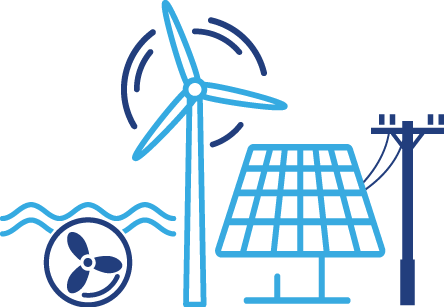
Project type:
Grid-connected, off-grid
Offtaker:
Industrials and rural communities
Greenhouse gas emissions avoided: 49,869 tonnes CO2e per year
People with first-time energy access: 2,700 (target)
Planned capacity: 30MW (target)
Funding structure
Contracted date: 23 October 2018
Lending type: Corporate convertible loan
REPP funding: Amount undisclosed due to confidentiality
Relevant SDGs







Country policy alignment
Supports Zambia’s Updated NDC (2021) targets to reduce GHG emissions by 47% by 2030. Buffalo Energy is also well-aligned with National Energy Policy (2019), Zambia’s Vision 2030 and
Eighth National Development Plan (2022-2026) objectives of diversifying the country’s energy mix through the promotion of renewable energy sources.
Middle Nzoia and Gitugi, Kenya
Technology: Run-of-river hydro
+ –
Middle Nzoia and Gitugi, Kenya
Technology:
Run-of-river hydro
Project type:
Greenfield, grid-connected
Offtaker:
Kenya Power
Greenhouse gas emissions avoided: 44,044 tonnes CO2e per year

Improves stability of grid supply
Planned capacity: 15.07MW
Funding structure
Contracted date: 30 June 2016
Lending type: Development capital
REPP funding: USD 751,000
Relevant SDGs






Country policy alignment
Supports Kenya’s Updated NDC (2020) target to abate GHG emissions by 32% by 2030 and the objectives of the National Energy Policy (2018), which includes the development of small hydro. By developing energy infrastructure, Virunga Power is supporting the manufacturing and other development priorities outlined in the “Big Four” agenda (2018).
Bboxx
Technology: Solar home systems
+ –
Bboxx
Technology:
Solar home systems

Project type:
Off-grid
Offtaker:
Off-grid communities
Greenhouse gas emissions avoided: 15,324 tCO2e per year (target) / 65,048 tCO2e (achieved, cumulative)
People with first-time energy access: 464,000 (target) / 643,825 (achieved)
Installed capacity: 16MW (target) / 4.8MW (achieved)
Funding structure
Contracted date: 6 September 2022
Lending type: Equity and warrants
REPP funding: USD 2.9 million
Relevant SDGs








Country policy alignment
Supports national electrification efforts in 10 countries. In DRC, for example, it is well-aligned with the National Development Strategic Plan 2019-2023, which calls for the increase in modern energy access to reduce the use of traditional biomass. In Kenya, it supports the Updated NDC (2020) mitigation and adaptation goals, which focus on increasing solar-based generation and abating GHG emissions by 32% by 2030. Also strongly aligned with Nigeria’s ‘new paradigm for rural electrification’ – delivering energy access through a mix of centralised and decentralised approaches.
Bboxx
Technology: Solar home systems
+ –
Bboxx
Technology:
Solar home systems

Project type:
Off-grid
Offtaker:
Off-grid communities
Greenhouse gas emissions avoided: 15,324 tCO2e per year (target) / 65,048 tCO2e (achieved, cumulative)
People with first-time energy access: 464,000 (target) / 643,825 (achieved)
Installed capacity: 16MW (target) / 4.8MW (achieved)
Funding structure
Contracted date: 6 September 2022
Lending type: Equity and warrants
REPP funding: USD 2.9 million
Relevant SDGs








Country policy alignment
Supports national electrification efforts in 10 countries. In DRC, for example, it is well-aligned with the National Development Strategic Plan 2019-2023, which calls for the increase in modern energy access to reduce the use of traditional biomass. In Kenya, it supports the Updated NDC (2020) mitigation and adaptation goals, which focus on increasing solar-based generation and abating GHG emissions by 32% by 2030. Also strongly aligned with Nigeria’s ‘new paradigm for rural electrification’ – delivering energy access through a mix of centralised and decentralised approaches.
Bboxx
Technology: Solar home systems
+ –
Bboxx
Technology:
Solar home systems

Project type:
Off-grid
Offtaker:
Off-grid communities
Greenhouse gas emissions avoided: 15,324 tCO2e per year (target) / 65,048 tCO2e (achieved, cumulative)
People with first-time energy access: 464,000 (target) / 643,825 (achieved)
Installed capacity: 16MW (target) / 4.8MW (achieved)
Funding structure
Contracted date: 6 September 2022
Lending type: Equity and warrants
REPP funding: USD 2.9 million
Relevant SDGs








Country policy alignment
Supports national electrification efforts in 10 countries. In DRC, for example, it is well-aligned with the National Development Strategic Plan 2019-2023, which calls for the increase in modern energy access to reduce the use of traditional biomass. In Kenya, it supports the Updated NDC (2020) mitigation and adaptation goals, which focus on increasing solar-based generation and abating GHG emissions by 32% by 2030. Also strongly aligned with Nigeria’s ‘new paradigm for rural electrification’ – delivering energy access through a mix of centralised and decentralised approaches.
Bboxx
Technology: Solar home systems
+ –
Bboxx
Technology:
Solar home systems

Project type:
Off-grid
Offtaker:
Off-grid communities
Greenhouse gas emissions avoided: 15,324 tCO2e per year (target) / 65,048 tCO2e (achieved, cumulative)
People with first-time energy access: 464,000 (target) / 643,825 (achieved)
Installed capacity: 16MW (target) / 4.8MW (achieved)
Funding structure
Contracted date: 6 September 2022
Lending type: Equity and warrants
REPP funding: USD 2.9 million
Relevant SDGs








Country policy alignment
Supports national electrification efforts in 10 countries. In DRC, for example, it is well-aligned with the National Development Strategic Plan 2019-2023, which calls for the increase in modern energy access to reduce the use of traditional biomass. In Kenya, it supports the Updated NDC (2020) mitigation and adaptation goals, which focus on increasing solar-based generation and abating GHG emissions by 32% by 2030. Also strongly aligned with Nigeria’s ‘new paradigm for rural electrification’ – delivering energy access through a mix of centralised and decentralised approaches.
Bboxx
Technology: Solar home systems
+ –
Bboxx
Technology:
Solar home systems

Project type:
Off-grid
Offtaker:
Off-grid communities
Greenhouse gas emissions avoided: 15,324 tCO2e per year (target) / 65,048 tCO2e (achieved, cumulative)
People with first-time energy access: 464,000 (target) / 643,825 (achieved)
Installed capacity: 16MW (target) / 4.8MW (achieved)
Funding structure
Contracted date: 6 September 2022
Lending type: Equity and warrants
REPP funding: USD 2.9 million
Relevant SDGs








Country policy alignment
Supports national electrification efforts in 10 countries. In DRC, for example, it is well-aligned with the National Development Strategic Plan 2019-2023, which calls for the increase in modern energy access to reduce the use of traditional biomass. In Kenya, it supports the Updated NDC (2020) mitigation and adaptation goals, which focus on increasing solar-based generation and abating GHG emissions by 32% by 2030. Also strongly aligned with Nigeria’s ‘new paradigm for rural electrification’ – delivering energy access through a mix of centralised and decentralised approaches.
Bboxx
Technology: Solar home systems
+ –
Bboxx
Technology:
Solar home systems

Project type:
Off-grid
Offtaker:
Off-grid communities
Greenhouse gas emissions avoided: 15,324 tCO2e per year (target) / 65,048 tCO2e (achieved, cumulative)
People with first-time energy access: 464,000 (target) / 643,825 (achieved)
Installed capacity: 16MW (target) / 4.8MW (achieved)
Funding structure
Contracted date: 6 September 2022
Lending type: Equity and warrants
REPP funding: USD 2.9 million
Relevant SDGs








Country policy alignment
Supports national electrification efforts in 10 countries. In DRC, for example, it is well-aligned with the National Development Strategic Plan 2019-2023, which calls for the increase in modern energy access to reduce the use of traditional biomass. In Kenya, it supports the Updated NDC (2020) mitigation and adaptation goals, which focus on increasing solar-based generation and abating GHG emissions by 32% by 2030. Also strongly aligned with Nigeria’s ‘new paradigm for rural electrification’ – delivering energy access through a mix of centralised and decentralised approaches.
Bboxx
Technology: Solar home systems
+ –
Bboxx
Technology:
Solar home systems

Project type:
Off-grid
Offtaker:
Off-grid communities
Greenhouse gas emissions avoided: 15,324 tCO2e per year (target) / 65,048 tCO2e (achieved, cumulative)
People with first-time energy access: 464,000 (target) / 643,825 (achieved)
Installed capacity: 16MW (target) / 4.8MW (achieved)
Funding structure
Contracted date: 6 September 2022
Lending type: Equity and warrants
REPP funding: USD 2.9 million
Relevant SDGs








Country policy alignment
Supports national electrification efforts in 10 countries. In DRC, for example, it is well-aligned with the National Development Strategic Plan 2019-2023, which calls for the increase in modern energy access to reduce the use of traditional biomass. In Kenya, it supports the Updated NDC (2020) mitigation and adaptation goals, which focus on increasing solar-based generation and abating GHG emissions by 32% by 2030. Also strongly aligned with Nigeria’s ‘new paradigm for rural electrification’ – delivering energy access through a mix of centralised and decentralised approaches.
Mwenga, Tanzania
Technology: On-shore wind
+ –
Mwenga, Tanzania
Technology:
On-shore wind
Project type:
Grid-connected
Offtaker:
Rural communities and semi-industrial clients
Greenhouse gas emissions avoided to date: 3,880 tCO2e

Improves stability of grid supply
Installed capacity: 2.4MW
Funding structure
Contracted date: 20 March 2020
Lending type: Mezzanine loan
REPP funding: USD 1.2m
Relevant SDGs








Country policy alignment
Supports Tanzania’s Updated NDC (2021) mitigation and adaptation priorities, including targets to reduce GHG emissions by up to 35% by 2030 and promote rural electrification and diversification of the energy system. Also supports the implementation of Tanzania’s Vision 2025 and the National Five-Year Development Plan 2021/22-2025/26 (2021) through the development of energy infrastructure and contribution towards increasing national generation capacity to 4,915MW. The wind-based generation is feeding into a local distribution grid, thus expanding energy access and supporting reliable supply, in line with the 85% electricity access by 2026 target.
Rupingazi, Kenya
Technology: Run-of-river hydro
+ –
Rupingazi, Kenya
Technology:
Run-of-river hydro
Project type:
Grid-connected, greenfield
Offtaker:
Kenya Power
Greenhouse gas emissions avoided: 17,534 tonnes CO2e per year

Improves stability of grid supply
Planned capacity: 6MW
Funding structure
Contracted date: 15 April 2018
Lending type: Development loan
Relevant SDGs






Country policy alignment
Supports Kenya’s Updated NDC (2020) target to abate GHG emissions by 32% by 2030, as well as the vision and objectives of the National Energy Policy (2018) and the Updated Least Cost Power Development Plan 2021-2030 (2021) of the Government, which focus on the provision of adequate, reliable and affordable power, including by encouraging the development of small hydro. By developing energy infrastructure, developer Kleen Hydro Limited is supporting the manufacturing and other development priorities outlined in the “Big Four” agenda (2018).
Moyamba, Sierra Leone
Technology: Solar PV mini-grids
+ –
Moyamba, Sierra Leone
Technology:
Solar PV mini-grids
Project type:
Off-grid
Offtaker:
Households and commercial customers
Greenhouse gas emissions avoided: 2,847 tCO2e per year (target) / 814 tCO2e (achieved, cumulative)
People with first-time energy access: 79,108 (target) / 55,820 (achieved)
Planned capacity: 1.3MW (target) / 1.36MW (achieved)
Funding structure
Contracted date: 1 April 2021
Lending type: Senior term loan
REPP funding: USD 1.25 million
Relevant SDGs








Country policy alignment
Project supports Sierra Leone’s Updated NDC (2021) conditional targets of reducing GHG emissions by 10% by 2030 and increasing energy access to 95% by 2030 by promoting renewable energy sources and energy efficiency. It also supports the country’s development targets to connect 20 villages and 8 towns in each district to electricity, including through off-grid standalone schemes, as well as increasing the share of renewables to 65% by 2023 (Medium-term National Development Plan 2019-2023).
GVE, Nigeria
Technology: Solar PV mini-grids
+ –
GVE, Nigeria
Technology:
Solar PV mini-grids
Project type:
Off-grid
Offtaker:
Off-grid communities
Greenhouse gas emissions avoided: 5,957 tCO2e per year (target) / Achieved: 861 tCO2e (cumulative)
People with first-time energy access: 73,500 (target)/ Achieved: 26,695
Planned capacity: 2.72MW (target) / Achieved: 0.43MW
Funding structure
Contracted date: 29 December 2016
Lending type: Development capital
REPP funding: USD 288,000
Relevant SDGs







Country policy alignment
Supports Nigeria’s Updated NDC (2021) conditional target to reduce GHG emissions by 45% by 2030. Strongly aligned with the Nigerian Government’s ‘new paradigm for rural electrification’ – delivering energy access through a combination of centralised and decentralised approaches. Contributes towards Nigeria’s National Development Plan 2021-2025 target to increase electricity access to 75% by 2025. Aligned with Nigeria’s Energy Transition Plan’s decarbonisation strategy to install 197GW of solar PV by 2050.
PowerGen
Technology: Solar PV mini-grids
+ –
PowerGen
Technology:
Solar PV mini-grids
Project type:
Off-grid
Offtaker:
Off-grid communities
Greenhouse gas emissions avoided: 43,581 tCO2e per year (target) / 2,902 tCO2e (achieved, cumulative)
People with first-time energy access: 480,000 (target) / 119,637 (achieved)
Planned capacity: 19.9MWp (target) / 4.57MWp (achieved)
Funding structure
Contracted date: 17 January 2020
Lending type: Equity
REPP funding: USD 2m
Relevant SDGs








Country policy alignment
Supports GHG emission reduction targets of all target countries. Strongly aligned with Nigeria’s aim to deliver energy access through a combination of centralised and decentralised approaches. Supports Sierra Leone’s conditional 95% by 2030 electrification target (Updated NDC, 2021) and Tanzania’s 60% electrification by 2026 target (National Five-Year Development Plan 2021/22-2025/26).
Winch, Sierra Leone & Uganda
Technology: Solar PV mini-grids
+ –
Winch, Sierra Leone & Uganda
Technology:
Solar PV mini-grids
Project type:
Off-grid
Offtaker:
Rural communities
Greenhouse gas emissions avoided: 739 tCO2e per year (target) / 294 tCO2e (achieved, cumulative)
People with first-time energy access: 55,000 (target) /21,473 (achieved)
Planned capacity: 2.2MW (target) / 1.96MW (achieved)
Funding structure
Contracted date: 17 September 2021
Lending type: Senior term loan
REPP funding: USD 2.1 million
Relevant SDGs







Country policy alignment
Project supports both countries’ NDC targets to reduce GHG emissions by 2030 and promote renewable energy development in rural areas. Contributes to Sierra Leone’s conditional national electrification target of 95% by 2030 (Updated NDC, 2021) and Uganda’s 100% electrification by 2030 target (Draft Revised National Energy Policy, 2019). Improving energy access through renewable energy supports the implementation of Sierra Leone’s medium-term development vision 2019-2023 and Uganda’s National Development Plan III (2020/21-2024/25).
Mobile Power, West Africa
Technology: Solar-powered battery hubs
+ –
Mobile Power, West Africa
Technology:
Solar-powered battery hubs

Project type:
Off-grid
Offtaker:
Communities and motorbike taxi drivers
Greenhouse gas emissions avoided: 9,885 tCO2e per year (target) / 294 tCO2e (achieved, cumulative)
People with first-time energy access: 273,800 (target) / 231,847 (achieved)
Planned capacity: 4.5MW (target) / 0.73MW (achieved)
Funding structure
Contracted date: 10 December 2020
Funding type: Equity
REPP funding: GBP 1 million
Relevant SDGs








Country policy alignment
Mobile Power is well aligned with national NDC targets and priorities of most portfolio countries, supporting, among others: Sierra Leone’s national policy priority of promoting renewable energy development in rural areas (Updated NDC, 2021); Liberia’s 2030 conditional targets to reduce its GHG emissions by 64% and increase the share of RE in electricity generation to 30% by 2030 (Updated NDC, 2021); Nigeria’s National Development Plan 2021-2025 electrification target of 75% by 2025; and Uganda’s 100% electrification by 2030 target (Draft Revised National Energy Policy, 2019).
Mount Coffee, Liberia
Technology: Grid-connected solar PV
+ –
Mount Coffee, Liberia
Technology:
Grid-connected solar PV

Project type:
Greenfield, grid-connected
Offtaker:
Liberia Electricity Corporation (LEC)
Greenhouse gas emissions avoided: 23,772 tonnes CO2e per year

Improves stability of grid supply
Planned capacity: 20MW
Funding Structure
Contracted date: 13 December 2018
Lending type: Development loan
REPP funding: USD 615,000
Relevant SDGs





Country policy alignment
Supports Liberia’s Updated NDC (2021) conditional target to reduce GHG emissions by 64% by 2030, including through installation of 100 MW of renewable energy plants, and make renewable energy >75% of the energy mix, as outlined in the Rural Energy Strategy and Master Plan (2016).
Bboxx
Technology: Solar home systems
+ –
Bboxx
Technology:
Solar home systems

Project type:
Off-grid
Offtaker:
Off-grid communities
Greenhouse gas emissions avoided: 15,324 tCO2e per year (target) / 65,048 tCO2e (achieved, cumulative)
People with first-time energy access: 464,000 (target) / 643,825 (achieved)
Installed capacity: 16MW (target) / 4.8MW (achieved)
Funding structure
Contracted date: 6 September 2022
Lending type: Equity and warrants
REPP funding: USD 2.9 million
Relevant SDGs








Country policy alignment
Supports national electrification efforts in 10 countries. In DRC, for example, it is well-aligned with the National Development Strategic Plan 2019-2023, which calls for the increase in modern energy access to reduce the use of traditional biomass. In Kenya, it supports the Updated NDC (2020) mitigation and adaptation goals, which focus on increasing solar-based generation and abating GHG emissions by 32% by 2030. Also strongly aligned with Nigeria’s ‘new paradigm for rural electrification’ – delivering energy access through a mix of centralised and decentralised approaches.
PowerGen
Technology: Solar PV mini-grids
+ –
PowerGen
Technology:
Solar PV mini-grids
Project type:
Off-grid
Offtaker:
Off-grid communities
Greenhouse gas emissions avoided: 43,581 tCO2e per year (target) / 2,902 tCO2e (achieved, cumulative)
People with first-time energy access: 480,000 (target) / 119,637 (achieved)
Planned capacity: 19.9MWp (target) / 4.57MWp (achieved)
Funding structure
Contracted date: 17 January 2020
Lending type: Equity
REPP funding: USD 2m
Relevant SDGs








Country policy alignment
Supports GHG emission reduction targets of all target countries. Strongly aligned with Nigeria’s aim to deliver energy access through a combination of centralised and decentralised approaches. Supports Sierra Leone’s conditional 95% by 2030 electrification target (Updated NDC, 2021) and Tanzania’s 60% electrification by 2026 target (National Five-Year Development Plan 2021/22-2025/26).
PAS Solar, Nigeria
Technology: Solar home systems
+ –
PAS Solar, Nigeria
Technology:
Solar home systems

Project type:
Off-grid
Offtaker:
Micro-enterprises and households
Greenhouse gas emissions avoided: 1,560 tonnes CO2e per year (target) / Achieved: 2,799 tCO2e (cumulative)
People with first-time energy access: 52,000 / Achieved: 22,652
Planned capacity: 0.52MWp / Achieved: 0.22MWp
Funding structure
Loan
Contracted date: 4 April 2019
Amount: USD 2.24m
Equity
Contracted date: 2 December 2019
Amount: USD 1.6m
Watch the PAS Solar video
Relevant SDGs








Country policy alignment
Supports Nigeria’s Updated NDC (2021) conditional target to reduce GHG emissions by 45% by 2030. Strongly aligned with the Nigerian Government’s ‘new paradigm for rural electrification’ – delivering energy access through a combination of centralised and decentralised approaches. Contributing towards Nigeria’s National Development Plan 2021-2025 target to increase electricity access to 75% by 2025.
Marco Borero, Kenya
Technology: Grid-connected solar PV
+ –
Marco Borero, Kenya
Technology:
Grid-connected solar PV

Project type:
Grid-connected
Offtaker:
Kenya Power and Lighting Company
Greenhouse gas emissions avoided: 1,929 tonnes CO2e per year (target)

Improves stability of grid supply (target)
Planned capacity: 1.65MWp (realised)
Funding structure
Contracted date: 9 April 2020
Lending type: Equity and shareholder loans
REPP funding: USD 525,000
Relevant SDGs






Country policy alignment
Marco Borero contributes directly towards Kenya’s target to reduce its GHG emissions by 32%, including through development of renewable energy capacity, as set out in its Updated NDC (2020). It also supports the implementation of the “Big Four” agenda (2018), which identifies energy as one of the enablers for sustained economic growth.
upOwa, Cameroon
Technology: Solar home systems
+ –
upOwa, Cameroon
Technology:
Solar home systems

Project type:
Off-grid
Offtaker:
Off-grid communities
Greenhouse gas emissions avoided: 9,473 tCO2e per year (target) / 15,163 tCO2e (achieved, cumulative)
People with first-time energy access: 1,000,000 (target) / 138,555 (achieved)
Planned capacity: 1.73MW (target) / 0.5 MW (achieved)
Funding structure
Initial funding:
Contracted date: 10 September 2019
Lending type: Equity
REPP funding: EUR 1.3m
Additional funding:
Contracted date: 28 September 2020
Lending type: Convertible loan
REPP funding: EUR 500,000
Relevant SDGs








Country policy alignment
Supports Cameroon’s Updated NDC (2021) conditional target to reduce GHG emissions by 35% by 2030. Renewable energy projects like upOwa are expected to have an important role in achieving universal electricity access, as outlined in Cameroon’s Rural Electrification Master Plan (2016).
Djermaya, Chad
Technology: Grid-connected solar PV
+ –
Djermaya, Chad
Technology:
Grid-connected solar PV

Project type:
Greenfield, grid-connected
Offtaker:
La Société Nationale D’Electricité (SNE), Chad’s national utility
Greenhouse gas emissions avoided: 39,683 tonnes CO2e per year

Improves security of grid supply
Planned capacity: 32MWp
Funding structure
Contracted date: 2 May 2018
Lending type: Development loan
REPP funding: up to EUR 380,000
Relevant SDGs





Country policy alignment
Supports Chad’s conditional Updated NDC (2021) target to reduce GHG emissions by 19.3% by 2030 and its first National Adaptation Plan (2022), which prioritises promotion of renewables. Project will help alleviate poverty and foster economic activity by providing lower cost power to the grid than fossil fuel-fired generation. Identified as a priority project in the Emergency Plan for Access to Electricity 2021-2023 (2020).
Bweengwa, Zambia
Technology: Geothermal
+ –
Bweengwa, Zambia
Technology:
Geothermal

Project type:
Exploratory (drilling)
Offtaker:
TBC
Greenhouse gas emissions avoided: 58,180 tonnes CO2e per year*
Planned capacity: 10MW*
Funding structure
Contracted date: 24 April 2020
Lending type: Convertible loan
REPP funding: up to USD 3.2m
Relevant SDGs





Country policy alignment
Project supports Zambia’s conditional NDC target to reduce GHG by 47% by 2030 (including through increased generation of renewable energy) and contributes USD 3.2m towards the estimated USD 35bn cost of implementing the conditional mitigation measures (NDC 2016; 2020). Also supports the aim of diversifying the energy mix, including through increased geothermal exploration, outlined as a priority in the National Energy Policy (2019).
CBEA PowerGen Tanzania
Technology: Solar PV mini-grids
+ –
CBEA PowerGen Tanzania
Technology:
Solar PV mini-grids
Project type:
Off-grid
Offtaker:
Off-grid rural communities
Greenhouse gas emissions avoided: 2,321 tonnes CO2e per year (target) / Achieved: 86 tonnes CO2e (cumulative)
People with first-time energy access: 39,725 (target) / Achieved: 4,660
Planned capacity: 1.1MW (target) / Achieved: 0.04MW
Funding structure
Initial funding
Contracted date: 31 December 2016
Lending type: Development capital
REPP funding: USD 345,000
Recipient: PowerGen Renewable Energy
Long-term loan
Contracted date: 5 July 2019
Lending type: Results-based senior loan
REPP funding: USD 3,000,000
Recipient: CrossBoundary Energy Access (CBEA)
Relevant SDGs







Country policy alignment
Supports Tanzania’s Updated NDC (2021) targets to reduce GHG emissions by up to 35% by 2030 and promote climate-smart rural electrification. Also contributes to achieving the 60% by 2026 electrification target, set out in National Five-Year Development Plan 2021/22 – 2025/26. Project’s numerous productive use customers and social service providers support sustainable economic growth in rural communities, which aligns with Tanzania’s Development Vision 2025.
Powerhive, Kenya
Technology: Solar PV mini-grids
+ –
Powerhive, Kenya
Technology:
Solar PV mini-grids
Project type:
Off-grid
Offtaker:
Off-grid communities
Greenhouse gas emissions avoided: 2,190 tCO2e per year (target) / Achieved: 1,083 tCO2e (cumulative)
People with first-time energy access: 90,000 (target) / Achieved: 24,826
Planned capacity: 1MW (target) / Achieved: 0.9MW
Funding structure
Contracted date: 24 May 2018
Lending type: Debt
REPP funding: USD 3m
Watch Powerhive’s video
Relevant SDGs







Country policy alignment
Supports Kenya’s Updated NDC (2020) mitigation and adaptation goals, which focus on increasing solar-based generation, strengthening the resilience of energy systems and abating GHG emissions by 32% by 2030. Powerhive also contributes to Kenya’s “Big Four” development agenda (2018) by fostering a wide range of productive use activities in its projects.
Winch, Sierra Leone & Uganda
Technology: Solar PV mini-grids
+ –
Winch, Sierra Leone & Uganda
Technology:
Solar PV mini-grids
Project type:
Off-grid
Offtaker:
Rural communities
Greenhouse gas emissions avoided: 739 tCO2e per year (target) / 294 tCO2e (achieved, cumulative)
People with first-time energy access: 55,000 (target) /21,473 (achieved)
Planned capacity: 2.2MW (target) / 1.96MW (achieved)
Funding structure
Contracted date: 17 September 2021
Lending type: Senior term loan
REPP funding: USD 2.1 million
Relevant SDGs







Country policy alignment
Project supports both countries’ NDC targets to reduce GHG emissions by 2030 and promote renewable energy development in rural areas. Contributes to Sierra Leone’s conditional national electrification target of 95% by 2030 (Updated NDC, 2021) and Uganda’s 100% electrification by 2030 target (Draft Revised National Energy Policy, 2019). Improving energy access through renewable energy supports the implementation of Sierra Leone’s medium-term development vision 2019-2023 and Uganda’s National Development Plan III (2020/21-2024/25).
PowerGen
Technology: Solar PV mini-grids
+ –
PowerGen
Technology:
Solar PV mini-grids
Project type:
Off-grid
Offtaker:
Off-grid communities
Greenhouse gas emissions avoided: 43,581 tCO2e per year (target) / 2,902 tCO2e (achieved, cumulative)
People with first-time energy access: 480,000 (target) / 119,637 (achieved)
Planned capacity: 19.9MWp (target) / 4.57MWp (achieved)
Funding structure
Contracted date: 17 January 2020
Lending type: Equity
REPP funding: USD 2m
Relevant SDGs








Country policy alignment
Supports GHG emission reduction targets of all target countries. Strongly aligned with Nigeria’s aim to deliver energy access through a combination of centralised and decentralised approaches. Supports Sierra Leone’s conditional 95% by 2030 electrification target (Updated NDC, 2021) and Tanzania’s 60% electrification by 2026 target (National Five-Year Development Plan 2021/22-2025/26).
Bboxx
Technology: Solar home systems
+ –
Bboxx
Technology:
Solar home systems

Project type:
Off-grid
Offtaker:
Off-grid communities
Greenhouse gas emissions avoided: 15,324 tCO2e per year (target) / 65,048 tCO2e (achieved, cumulative)
People with first-time energy access: 464,000 (target) / 643,825 (achieved)
Installed capacity: 16MW (target) / 4.8MW (achieved)
Funding structure
Contracted date: 6 September 2022
Lending type: Equity and warrants
REPP funding: USD 2.9 million
Relevant SDGs








Country policy alignment
Supports national electrification efforts in 10 countries. In DRC, for example, it is well-aligned with the National Development Strategic Plan 2019-2023, which calls for the increase in modern energy access to reduce the use of traditional biomass. In Kenya, it supports the Updated NDC (2020) mitigation and adaptation goals, which focus on increasing solar-based generation and abating GHG emissions by 32% by 2030. Also strongly aligned with Nigeria’s ‘new paradigm for rural electrification’ – delivering energy access through a mix of centralised and decentralised approaches.
